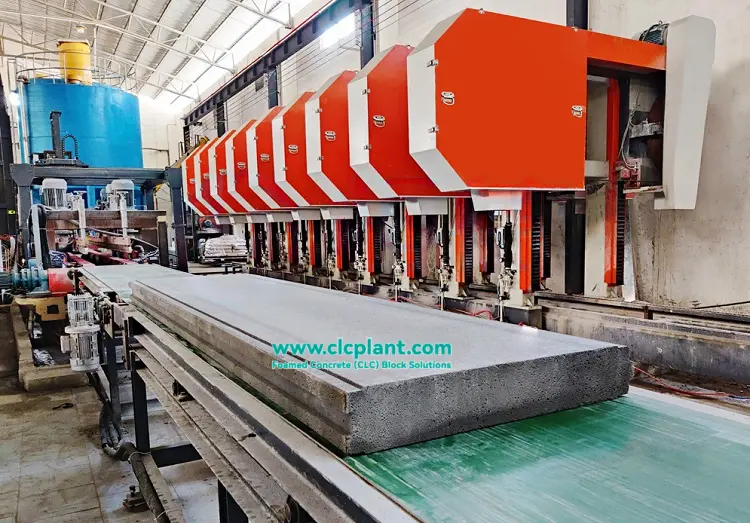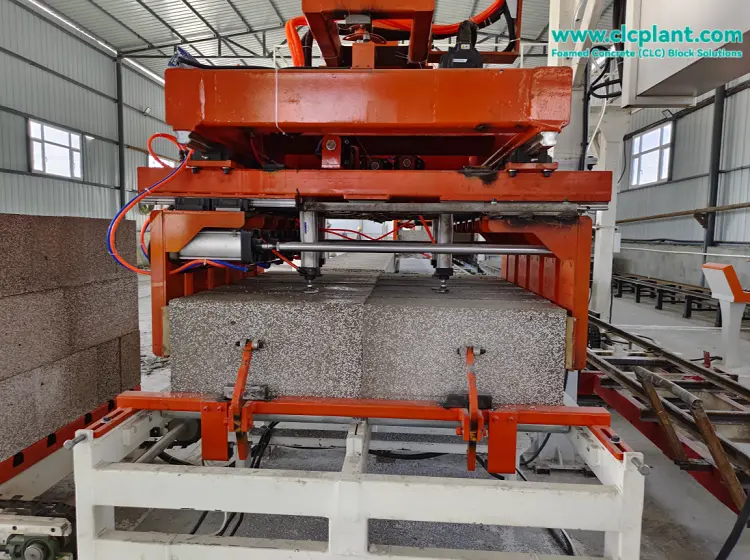Aerated brick equipment daily maintenance guide
First, the importance of equipment maintenance
1. Ensure production continuity
-
Avoid production interruptions caused by equipment failure
-
Ensure that the production program is completed on time
-
Maintain stable product quality
2. Extend the service life of equipment
-
Reduce wear and tear of parts
-
Prevent major breakdowns
-
Increase return on equipment investment
3. Reduce operating costs
-
Reduce maintenance costs
-
Reduce energy costs
-
Avoid production losses
4. Ensure safe production
-
Preventing safety accidents
-
Create a good working environment
-
Ensure employee safety
Second, the daily maintenance points
1. Daily maintenance program
Cleaning:
-
Equipment surface cleaning
-
Rail and transmission parts cleaning
-
Sensors and detection components cleaning
-
Hydraulic system external cleaning
Inspection items:
-
Fasteners inspection in all parts
-
Hydraulic system pressure check
-
Pneumatic system sealing check
-
Electrical connection status check
2. Weekly maintenance program
Lubrication maintenance:
-
Each lubrication point filling lubricant
-
Guide rail and slide lubrication
-
Drive chain lubrication adjustment
System check:
-
Hydraulic oil level and quality check
-
Pneumatic system filter cleaning
-
Electrical control system check
3. Monthly maintenance program
In-depth inspection:
-
Equipment accuracy inspection and adjustment
-
Wear and tear inspection of key components
-
Function test of safety devices
-
Control system parameter calibration
III. Common Problems and Preventive Measures
1. Problems of mechanical parts
Looseness phenomenon:
-
Regularly check fasteners
-
Establish fastener inspection records
-
Use proper torque tools
Wear and tear problems:
-
Lubricate and maintain on time
-
Monitor the condition of wear parts
-
Replace wear parts in a timely manner
2. Hydraulic system problems
Leak Prevention:
-
Inspect seals regularly
-
Monitor hydraulic fluid quality
-
Replace deteriorated tubing in a timely manner
Pressure Abnormalities:
-
Calibrate pressure gauges regularly
-
Clean the hydraulic oil filter element
-
Monitor oil temperature changes
3. Electrical system problems
Loose connections:
-
Check terminals regularly
-
Clean dust from electrical components
-
Check grounding reliability
Faulty sensors:
-
Clean detection elements regularly
-
Calibrate sensor parameters
-
Backup system parameter settings
IV. Maintenance Management System
1. Personnel training requirements
-
Improve the professional skills of maintenance personnel
-
Establishment of standardized operating procedures
-
Organize regular technical training
-
Cultivate the awareness of preventive maintenance
2. Record management
Maintenance records:
-
Establish equipment maintenance files
-
Record the contents of each maintenance
-
Tracking equipment operation status
-
Analyze the failure pattern
Spare parts management:
-
Establish spare parts inventory system
-
Use original qualified spare parts
-
Tracking the use of spare parts
-
Optimize spare parts procurement plan
3. Preventive maintenance plan
Formulate the principle:
-
Based on the operating time of the equipment
-
Considering the working environment conditions
-
Refer to the frequency of equipment use
-
Combined with the requirements of the production process
Implementation points:
-
Strictly implement the maintenance program
-
Handle abnormal conditions in a timely manner
-
Regularly evaluate the effectiveness of maintenance
-
Continuously optimize the maintenance program
V. Precautions
1. Avoid common misconceptions
-
Repair instead of maintenance: can not wait until the equipment failure to carry out maintenance
-
Neglect small problems: small faults may cause big problems
-
The use of substandard parts: affect the performance and safety of equipment
-
Neglect environmental factors: the working environment affects the life of the equipment
2. Special reminders
-
Equipment working in harsh environments requires enhanced maintenance
-
Increase the inspection frequency of new equipment in the early stage of operation
-
Pay attention to the equipment adaptability adjustment when the season changes
-
After a long period of downtime to carry out a comprehensive inspection before starting again
Sixth, the economic benefits of maintenance
Direct benefits:
-
Reduce equipment maintenance costs
-
Reduce the frequency of spare parts replacement
-
Extend the service life of equipment
Indirect benefits:
-
Ensure production schedule completion
-
Improve the stability of product quality
-
Enhance market competitiveness
-
Enhance corporate image
The maintenance of aerated brick equipment is a systematic project, which requires enterprises to attach great importance to and long-term persistence. Through the establishment of a scientific maintenance system, strict implementation of the maintenance program, not only to ensure the normal operation of the equipment, but also to create significant economic benefits for the enterprise.
As a professional supplier of aerated brick equipment, our company not only provides high-quality equipment, but also provides customers with perfect after-sales service and technical support, including equipment maintenance training, spare parts supply, technical consulting and other comprehensive services. Welcome users to contact us for more professional guidance on equipment maintenance.

